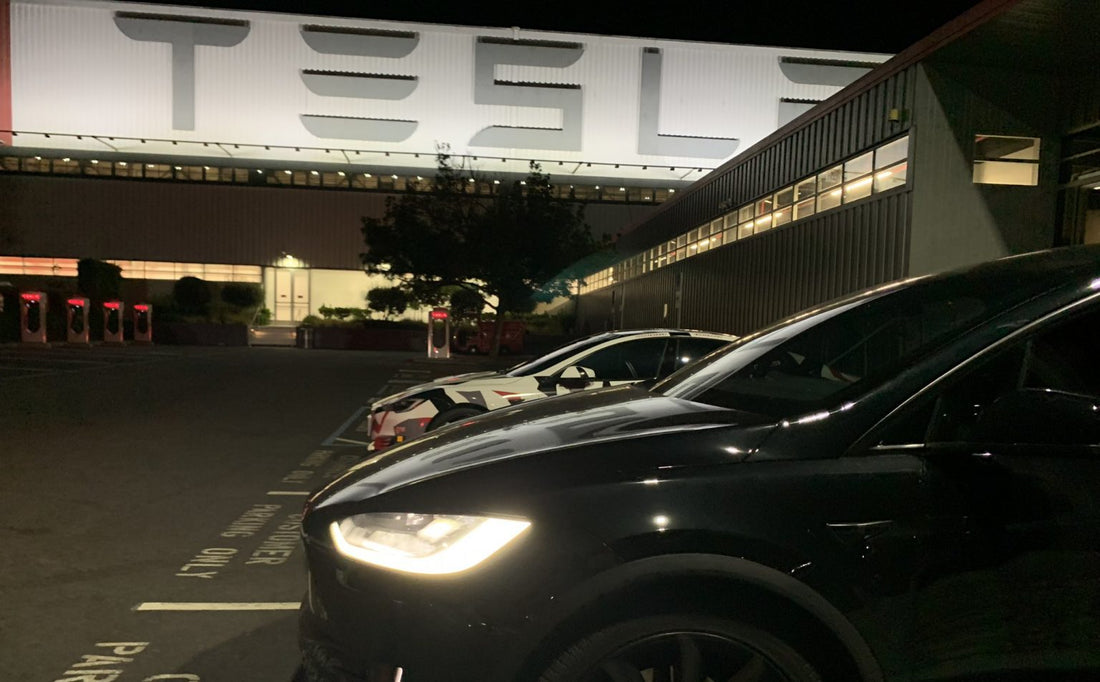
Morgan Stanley puts the brakes on optimism for Tesla stock, reducing price target ahead of earnings.
Morgan Stanley analysts have applied the brakes to Tesla's stock momentum, revising down its price target ahead of the impending Earnings Call this week.
While Tesla's shares have witnessed a 66 percent surge over the past year, a 15 percent decline in the current year has prompted caution among some investors, including those at Morgan Stanley. In a note to investors, the analysts highlighted concerns about global demand challenges, citing factors such as heightened competition, pricing fluctuations, and a slowdown in EV demand.
Despite Tesla's achievements, including reaching its 1.8 million unit delivery goal in 2023, leading in EV deliveries across regions, and introducing new models like the Cybertruck and redesigned Model 3, Morgan Stanley is adopting a guarded stance for 2024. The analysts foresee challenges in the global EV landscape, emphasizing the need for caution in Tesla's volume and profitability outlook for 2024. While acknowledging the difficulties in the EV market, Morgan Stanley maintains an optimistic view on Tesla's AI and robotics potential.
Adam Jonas, in the analysts' note, outlined various risk factors for Tesla in the upcoming year, encompassing price adjustments, potential weakening or expiration of EV incentives, surplus capacity in China, residual value uncertainties, and a reduction in fleets concentrating on EVs. This cautious approach reflects the ever-changing dynamics and intensifying competition in the EV sector.
Morgan Stanley has raised concerns about various challenges affecting Tesla's outlook. Here's a breakdown of key issues:
Price Cuts:
Tesla's efforts to achieve pricing stability in 2023 have alleviated concerns but remain a worry for investors. Price reductions in China and Europe, surpassing expectations for the full year, are particularly troubling for Morgan Stanley. The swift adjustment following production cuts at Giga Berlin suggests a rapidly changing situation in the European EV market.
Expiration/Weakening of EV Incentives:
Tesla is navigating changes in the U.S., especially concerning EV tax credits. The loss of tax credit eligibility for two Model 3 configurations, despite the car's affordability, raises concerns. Morgan Stanley expresses skepticism about the future of incentives, particularly the Investment Tax Credit (ITC), citing increasing uncertainty. This may influence consumers and potentially divert them towards other vehicles, with other major automakers also losing tax credit eligibility.
Excess Capacity in China:
Morgan Stanley's Chinese team observes factors like sales cannibalization, increased battery capacity, inventory, and the expiration of local stimulus measures contributing to potential challenges for Tesla in China.
Residual Value Risks:
Price cuts by Original Equipment Manufacturers (OEMs) have impacted Electric Vehicle (EV) residuals, leading to decreased enthusiasm for electric cars among dealerships. Residual value volatility, as noted by Jonas, affects the value proposition for consumers and introduces uncertainty for leasing partners. Tesla's low global leasing penetration adds to the concerns.
Fleets Cutting EVs:
Hertz's decision to scale back its massive EV commitment due to cost miscalculations and selling off one-third of its EV fleet is highlighted. Other companies are also reducing their EV commitments, impacting order volumes for EV makers. Fleets, which provide a substantial boost to orders and allow drivers to experience EVs before purchasing, are expected to play a reduced role.
In summary, Morgan Stanley's caution for Tesla in 2024 is rooted in a combination of pricing challenges, changing incentive landscapes, market dynamics in key regions, and potential impacts on residual values and fleet commitments.
-----------The article excerpted from TESLARATI.















